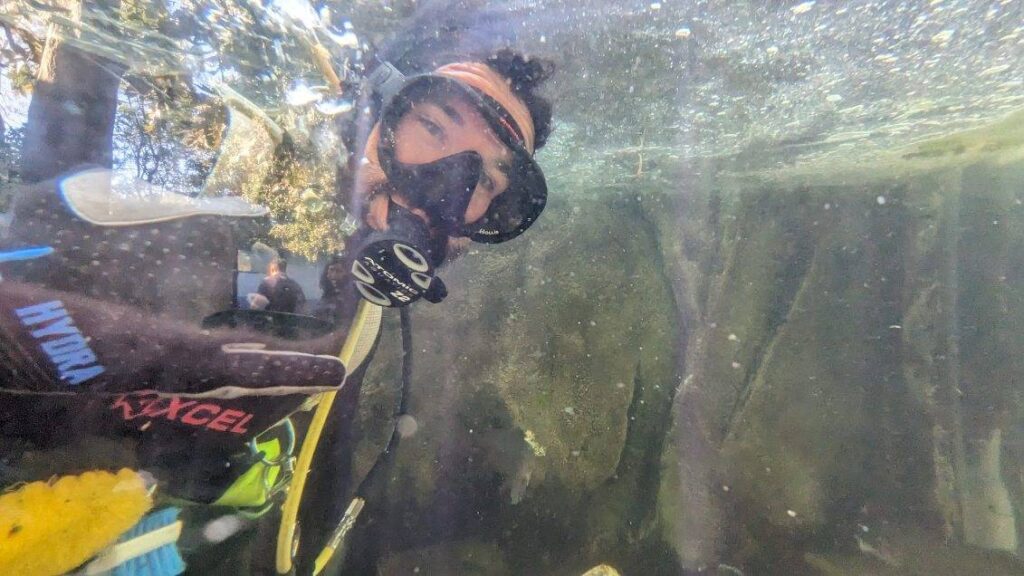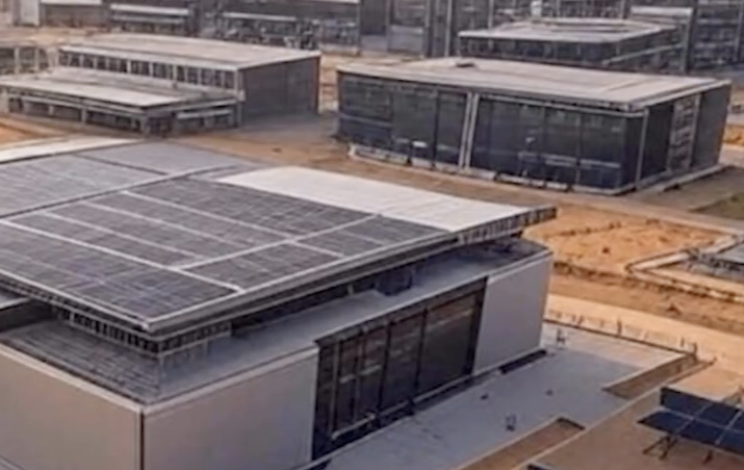(LOS ANGELES) — From traveling to global dive sites to enjoying the evening tranquility cleaning tanks at the Aquarium of the Pacific, scuba instructor and recreational diver, Brian Valdes is making every dive count for ocean conservation.
Raised in southern Miami, Valdes always felt drawn to the ocean. After relocating to California, he immersed himself in the scuba diving community and visited the Aquarium of the Pacific in Long Beach several times. With these visits, he began considering a deeper commitment to ocean conservation.
The prerequisites for volunteering at the aquarium involve multiple scuba diving certifications, which propelled Valdes to become an explorer, teacher, and, above all, a marine conservation advocate.
Zoos and aquariums are often cast as places that hold animals in confined, unnatural settings. Valdes offers a different perspective:
“The thing that some people don’t understand is that sometimes these animals will be there for rehabilitation, or for collections to study and actually improve upon what we know on the animal, or to help repopulate.”
The volunteer divers at the Aquarium of the Pacific primarily spend their time cleaning the tanks that house the animals. Valdes enjoys diving the 5 to 8 p.m. shift where he can sometimes play a game of rock, paper, scissors from inside the tank with the day’s last visitors behind the glass.
Like a doctor scrubbing in for surgery, divers must avoid introducing contaminants into the tanks and preserve their natural habitats.
“I bring my own mask and fins but everything else [the gear] is just there and prepped…we have strict protocols even within the aquarium…you have to cleanse your gear before going into another tank so microorganisms from one enclosure don’t go into another,” Valdes says.
While beach cleanups, and banning plastic straws are small-scale ways to preserve the ocean, Valdes stresses sustainable fishing and conscientious food sourcing have the biggest impact.
“The things I find the most of on deep dives are fishing supplies…that stuff is really hard to get a hold of and wrangle in. We’re the ones that are causing supply and demand but the thing about the ocean is it’s not easy to regulate. If you’re buying ‘dolphin-safe tuna’ take that at face value because you think about these massive nets that end up getting caught up at the bottom of the ocean or all the bycatch… you’re heavily impacting the lives of those animals with what you’re trying to consume and how.”
The Aquarium of the Pacific and others are attempting to educate the public by distributing “Seafood Watch” pamphlets, which detail fish origins.
Valdes also highlighted a lesser-known issue: human trafficking in the fishing industry.
“People will take these fishermen off the grid and put them on satellite ships for years so they can continuously fish…they take them away from their families, promise them a wage, and then they don’t see the wage or the land for years.”
Having recently returned from a scuba trip to Ireland and an ice dive in Northern California, Valdes has certainly done his fair share of destination diving. Content in his current role, Valdes does envision broadening his conservation outreach. When training new divers at Catalina Island, he emphasizes an eco-conscious approach.
“Once you become a diver, you get to see firsthand how we affect the ocean…when we come back from a dive and I return with little pieces of plastic, the students see why I keep a small bag on me, and hopefully they learn to do the same.”
To learn more about sustainability and access to a consumer guide, visit Seafood Watch
If you are interested in learning more about scuba diving or dive shops near you, visit Padi.com


